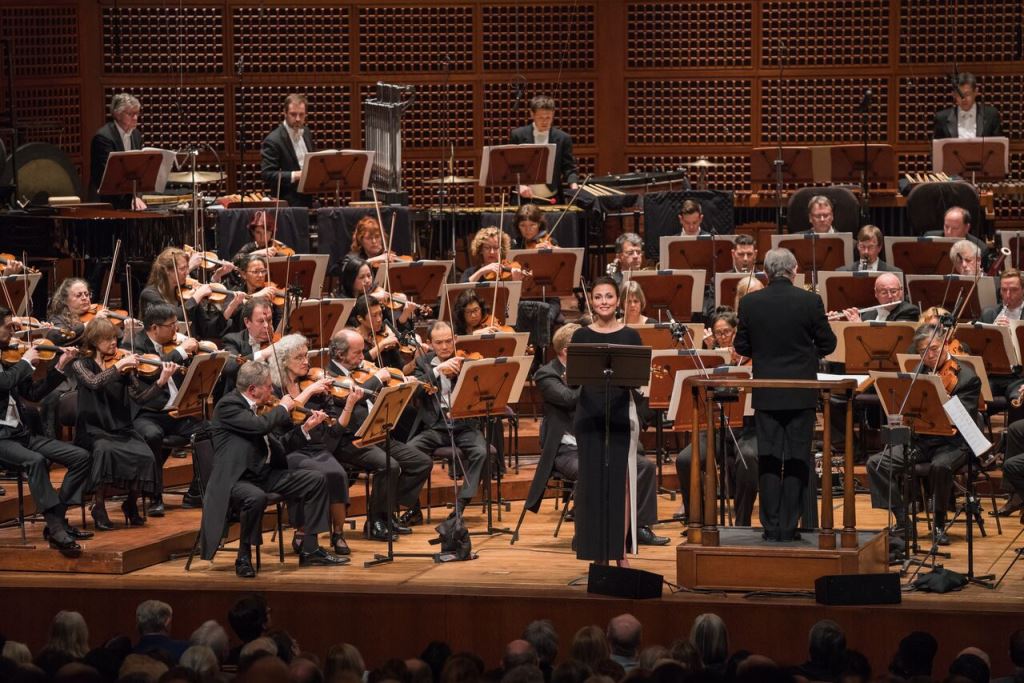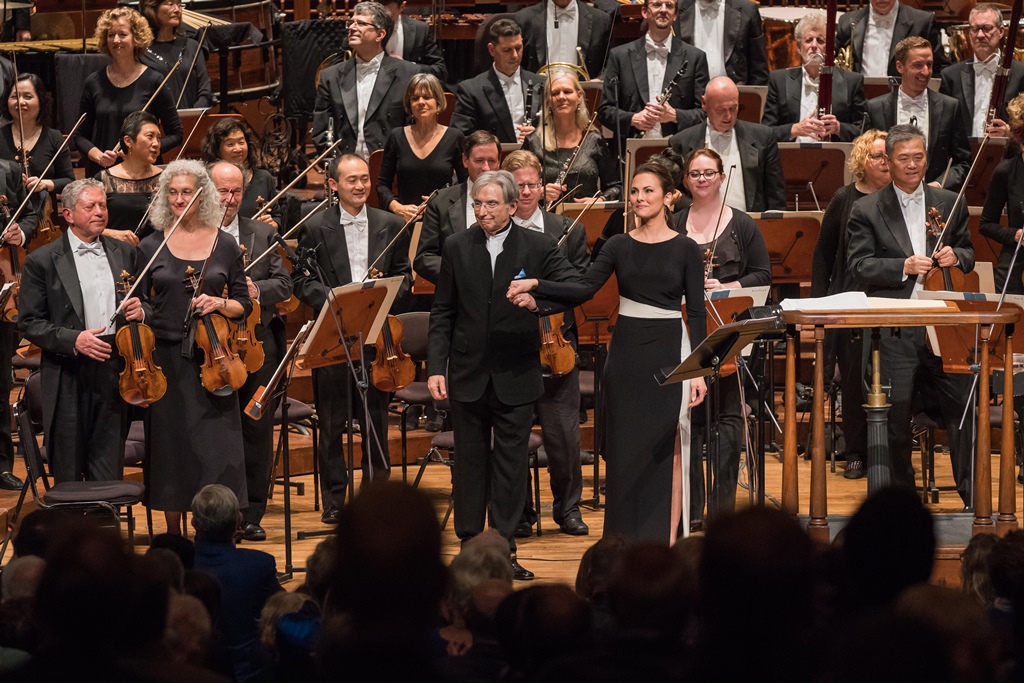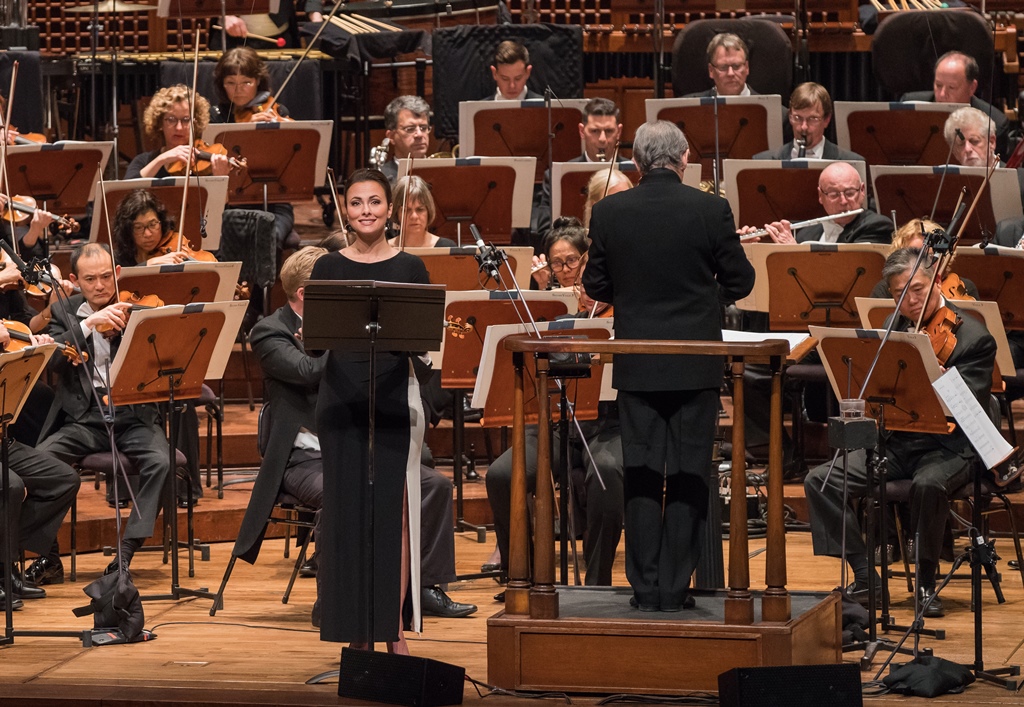MTT's Moving Tribute to Anne Frank Strikes a Chord
/By Elsa Tranter
11/18/2018
Photo credit: Brandon Patoc/San Francisco Symphony
In this 40th anniversary year of the United Nations passage of its ‘Declaration of Human Rights’ the San Francisco Symphony, under its almost-to-be emeritus Music Director Michael Tilson Thomas, has programed music celebrating the human spirit.
This week the highlight was ‘From the Diary of Anne Frank’, written by MTT in 1989. The actress Audrey Hepburn was intrigued by Anne Frank’s diary and worked with Mr. Tilson Thomas on its composition. She was, at the time, an ambassador for UNICEF. Audrey Hepburn was the exact same age as Anne Frank and both lived through World War II in Holland under the Nazi occupation. As many of us know, their stories ended quite differently—Anne Frank died in a Nazi concentration camp at the age of 15, whereas Audrey Hepburn became a world famous actress and humanitarian. Perhaps she was channeling Anne Frank in some of her later work.
Mr. Tilson Thomas and Ms Hepburn collaborated on the piece, with each of them selecting their favorite passages from the diary for the narrator to read; the music was composed around the words. The work had its premiere in 1990 with the composer conducting and Ms. Hepburn narrating. It has been performed many times around the world, but its only scheduled performance in San Francisco in 1993 (after MTT was chosen for the position of Music Director) was cancelled because of a musicians’ strike.


The performance on Thursday November 15 had opera star Isabel Leonard as narrator. She bore a striking resemblance to Ms Hepburn—tall, slim, dark hair pulled back, a charming look of innocence in her demeanor. She read the excerpts with feeling and as though she, too, were thinking of the original writer of the diary.
The themes of the diary – a teen’s longing for a friend, her aspirations as a writer, the horror of war all around, and finally her faith that ‘people are still good’ – are all spoken of and played out in the music. It is in four parts: Part I is an introduction and hope, with a little background about her happy life but her longing for a ‘true friend’ which will be her diary, Kitty. The music is melodic, vaguely Jewish in tone, with hints of Bernstein. Part II describes the Nazi edicts and the horrors of everyday life for Jews, leading the Frank family to go into hiding. Anne writes ‘why can’t people live peacefully together?’ Here the music becomes dark and foreboding, but still tonal, with greater emphasis on horns and timpani. Part III has some hope, spring has come and the sky is a deep blue, although the situation is even more dire. The music reflects her different moods with hints of more Bernstein and West Side Story detected. Part IV seems to suggest the inevitable – ‘I want to go on living even after my death’. There is lushness as she pours her heart out to her diary, perhaps hoping the world will read her words (as it has, of course, done).
The music isn’t earth-shaking, but it is very listenable, and the combination of the history, the narration, and the orchestra was extremely moving and resonates as much now as it ever did. The San Francisco symphony got it just right—perhaps they, too, fell under the spell of “The Diary of Anne Frank”.
The second half of the program featured another work that ends in hope and triumphant affirmation. This was Beethoven’s Symphony No 3 in E-flat major (the Eroica) from 1804. It had an interesting history as it was written during the time of Napoleon. Beethoven initially dedicated it to Napoleon, calling it “a heroic symphony, composed to celebrate the memory of a great man”, but at one point crossed out the dedication as he blew hot and cold in his views of Napoleon. It is much longer than other pieces written at the time, lasting almost an hour. The SF Symphony did a credible job of it with all the many soloists performing well. The music is among the most familiar in the repertoire and it’s always a tonic to hear it performed live.
Elsa Tranter is a Bostonian who has lived in Berkeley for over 40 years and has been an opera goer for most of those years. She worked as a graduate student adviser at UC Berkeley and still attends Cal Performances regularly. Her favorite composer is Wagner and her favorite opera is Tristan und Isolde.


